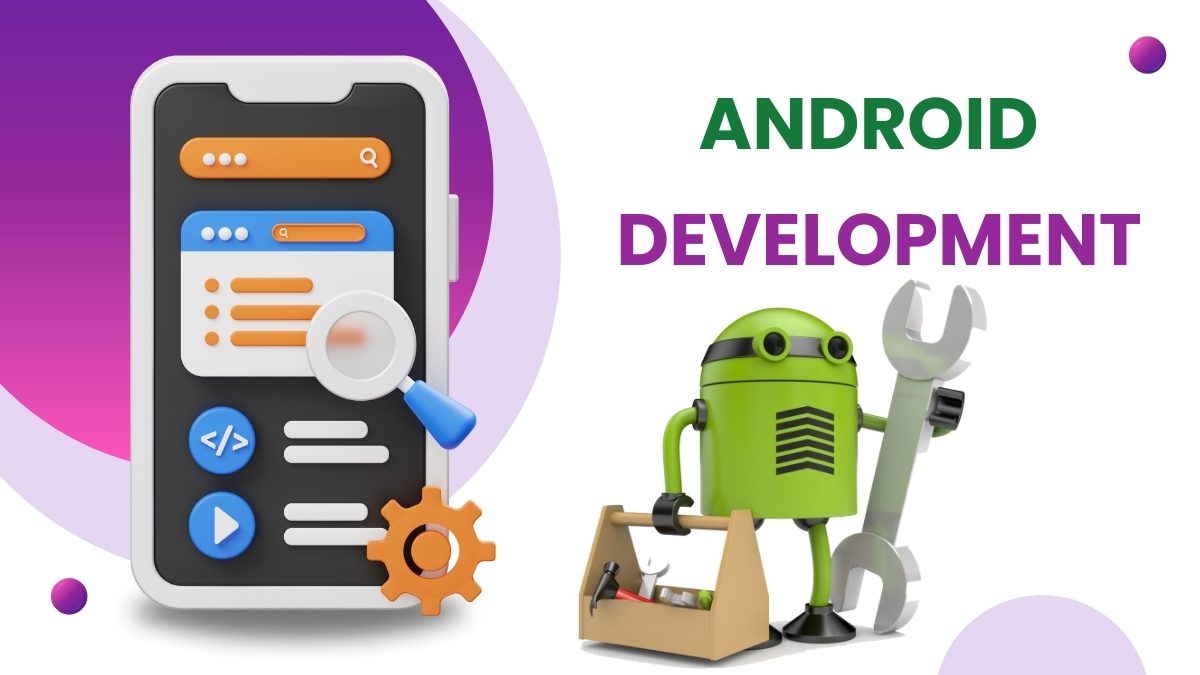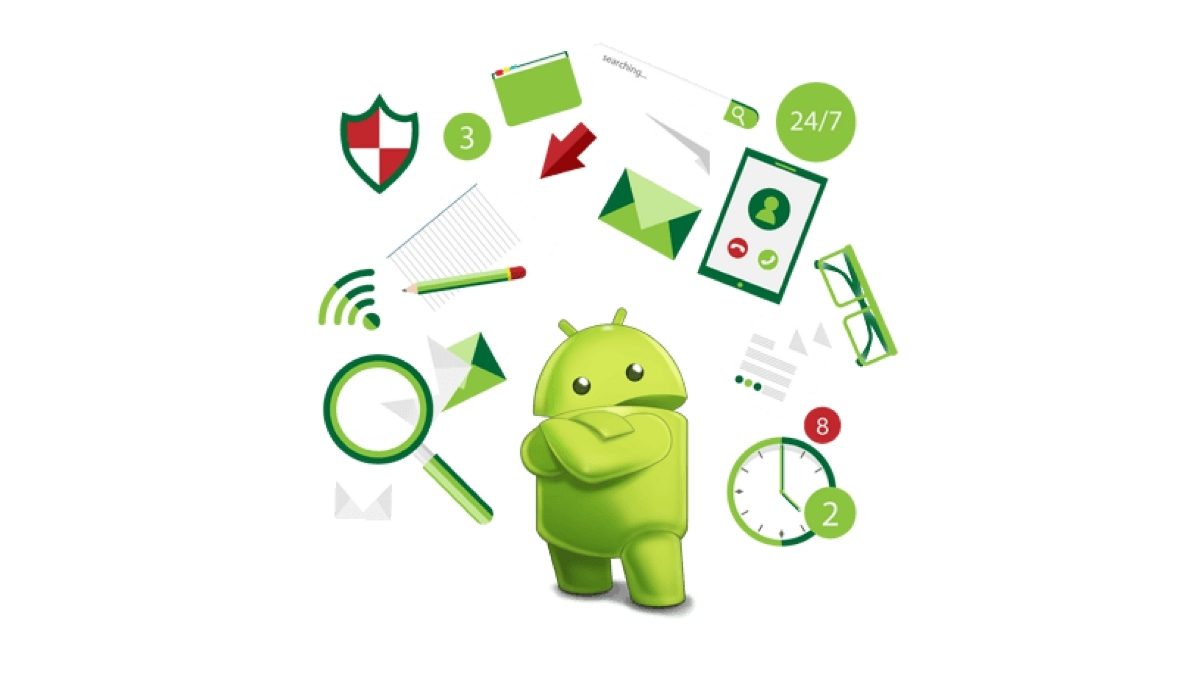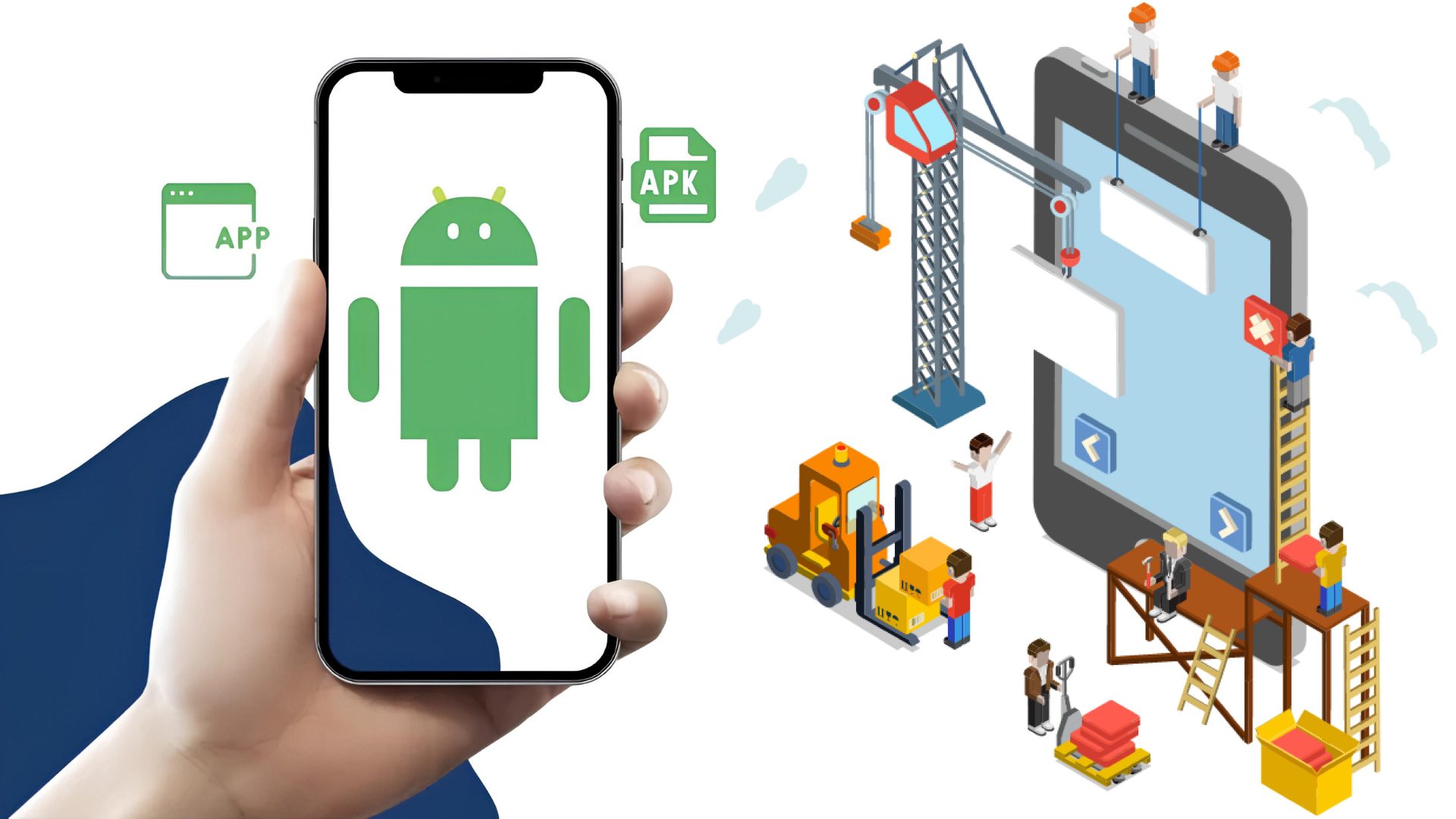Introduction & The Foundations of Android Development
Introduction to Android Development
- The Evolution of Android:
Android‘s journey from a basic operating system to the world’s most popular mobile platform is extraordinary. It started as an ambitious project under Google’s wing in 2008, and today, it powers over 2.5 billion devices globally. Android’s open-source nature has driven innovation, allowing developers to create versatile applications that cater to a diverse audience.
- Why Android Development Matters:
Why should you care about Android Development? Imagine reaching millions of users with a single app. Android’s dominance in the global market offers unparalleled opportunities for developers. Whether you aim to build an app for the masses or cater to niche markets, Android Development provides endless possibilities.
- Market Opportunities in Android Development:
The Android market is vast and teeming with opportunities. With an ever-growing user base, the demand for innovative apps is rising. Android Development enables businesses to create solutions that meet various needs, from entertainment to healthcare. By tapping into this market, developers can significantly impact and drive success.
The Foundations of Android Development
Overview of Android Architecture
Understanding Android’s architecture is not just a prerequisite but a crucial step towards mastering Android Development. The Android OS is built on a layered architecture comprising the Linux kernel, libraries, Android runtime, application framework, and applications. Each layer plays a vital role in ensuring the smooth functioning of Android apps, making it essential for developers to grasp how these components interact.
Critical Components of Android Apps
At the core of every Android app are its components. These include Activities, Services, Broadcast Receivers, and Content Providers. Each component serves a specific purpose, from managing the user interface to handling background tasks. By understanding these elements, developers can design functional and user-friendly apps.
Understanding Android SDK and Tools
The Android Software Development Kit (SDK) is a comprehensive set of tools developers use to create Android apps. It includes libraries, debuggers, handset emulators, and more. Mastery of the SDK is essential for efficient Android Development. Tools like Android Studio Software and Gradle further streamline the development process, making bringing your app ideas to life more accessible.


Setting Up, Lifecycle & Exploring Android Development
Setting Up Your Android Development Environment
- Installing Android Studio Software: The first step in Android Development is setting up your environment. Android Studio Software is Android’s official integrated development environment (IDE). Installation is straightforward, but ensuring your system meets the requirements is critical. Once installed, configuring it to suit your workflow will help you maximize productivity.
- Configuring the Android Developer Console: The Android Developer Console is not just a tool but a command center where you manage your apps once they’re ready to be published. From uploading APKs to monitoring app performance, the console is an indispensable tool for developers. Proper configuration ensures you can efficiently manage your apps, track their progress, and respond to user feedback.
- Emulator vs. Physical Device Testing: Testing is not just a phase but a critical aspect of Android Development. While emulators offer convenience and speed, testing on physical devices provides insights into real-world performance. Both have merits, and combining them often yields the best results. Balancing these testing methods is essential to delivering a polished app.
Android App Development Lifecycle
- The Concept and Planning Stage: Planning is essential before diving into development. This stage involves defining your aapp’spurpose, target audience, and core features. A well-thought-out plan is a blueprint that guides the development process and ensures the final product aligns with your vision.
- Designing the User Interface: User experience is at the heart of any successful app. Designing an intuitive and visually appealing interface is crucial. Tools like XML and Android SStudio’slayout editor can help you craft interfaces that look good and provide seamless navigation and functionality.
- Development and Coding Practices: This stage is where your ideas come to life. Writing clean, efficient code is paramount. Adopting best practices such as modular coding, adhering to coding standards, and regular refactoring will ensure that your app is maintainable and scalable in the long run.
- Testing, Debugging, and Deployment: No app is perfect on the first try. Rigorous testing and debugging are necessary to identify and fix issues. Tools like Logcat in Android Studio help developers troubleshoot and refine their apps. Once polished, the app is ready for deployment on the Google Play Store.
Exploring Android Studio Software
- Key Features of Android Studio: Android Studio is packed with features designed to simplify Android Development. From the code eeditor’spowerful autocomplete to the built-in emulator, these tools can significantly boost productivity. Familiarizing yourself with these features will help you leverage the full potential of Android Studio Software.
- Best Practices for Using Android Studio: Efficiency in Android Development often depends on how well you use your tools. Best practices include utilizing keyboard shortcuts, customizing the IDE layout to suit your workflow, and integrating version control systems like Git. These practices ensure that your development process is as smooth as possible.
- Troubleshooting Common Issues: Even the best developers encounter issues. Common problems like Gradle build failures or emulator crashes can disrupt your workflow. Understanding how to troubleshoot these issues will save you time and keep your project on track.
Factors affecting Android Development
Mastering Android Game Development
- Introduction to Android Game Development: Android Game Development is a niche within Android Development that offers unique challenges and rewards. Unlike regular apps, games require high performance, engaging graphics, and smooth gameplay. Understanding the basics of game design and development is the first step toward creating successful Android games.
- Tools and Libraries for Game Development: Several tools and libraries are available to aid in Android Game Development. Engines like Unity and Unreal Engine offer robust platforms for game development, while libraries like LibGDX provide the necessary functionality to build complex games. Choosing the right tools can make or break your game development project.
- Monetization Strategies for Android Games: Monetizing games is different from monetizing apps. In-app purchases, ads, and premium versions are popular strategies. However, balancing monetization with user experience is crucial. A well-monetized game offers value to players while generating revenue for developers.
Advanced Android Development Techniques
- Working with APIs and Third-Party Libraries: APIs and third-party libraries extend your app’s functionality. Whether integrating social media, payment gateways, or cloud services, these tools can significantly enhance your app’s capabilities. Mastering API integration is a valuable skill in Android Development.
- Implementing Push Notifications: Push notifications are a powerful tool for engaging users. Proper implementation involves setting up Firebase Cloud Messaging (FCM) and ensuring timely, relevant, personalized notifications. When done right, push notifications can increase user retention and app usage.
- Optimizing App Performance: Performance is critical in Android Development. An app that lags or crashes will quickly lose users. Optimizing resource usage, minimizing memory leaks, and using efficient algorithms ensure your app runs smoothly on various devices.


The Role of the Android Developer Console
- Navigating the Android Developer Console: The Android Developer Console is more than just a publishing platform. It offers tools for app management, performance analysis, and user engagement. Learning to navigate and utilize the console’s features will help you make informed decisions about your app’s development and marketing strategies.
- App Publishing and Distribution: Publishing an app involves more than just uploading it to the Play Store. Developers must comply with Google’s guidelines, optimize the app’s listing for visibility, and plan a marketing strategy. Understanding the publishing process is critical to a successful app launch.
- Analyzing App Performance and User Feedback: Post-launch, the Android Developer Console provides valuable insights into how your app is performing. Metrics such as download rates, crash reports, and user reviews offer a window into the app’s success and areas for improvement. Analyzing this data helps developers iterate and refine their apps.
Challenges in Android Development
- Fragmentation Across Devices: One of the biggest challenges in Android Development is fragmentation. With thousands of devices running different versions of Android, ensuring your app works seamlessly across all of them is a daunting task. Responsive design and thorough testing are essential to overcoming this challenge.
- Security Concerns in Android Apps: Security is a primary concern for Android developers. With the growing number of cyber threats, protecting user data and ensuring app integrity is paramount. Implementing best practices such as encryption, secure authentication, and regular security updates helps mitigate these risks.
- Managing App Store Policies: Google Play Store’s policies can be stringent and ever-changing. Keeping up with these policies is crucial to avoid app rejections or removals. Understanding and adhering to the guidelines ensures that your app remains available to users and complies with Google’s standards.
Best Practices for Successful Android Development
- Writing Clean and Maintainable Code:
Clean code is the foundation of a successful app. It makes the codebase more straightforward to understand, maintain, and scale. Adopting best practices such as following naming conventions, modularizing code, and documenting your codebase will pay off in the long run.
- Following UI/UX Design Principles:
A well-designed app looks good and provides a seamless user experience. Following UI/UX principles such as consistency, accessibility, and responsiveness ensures that your app meets user expectations and stands out in the crowded marketplace.
- Ensuring App Accessibility and Inclusivity:
Accessibility should be a priority in Android Development. Ensuring that your app is usable by people with disabilities expands your audience and demonstrates social responsibility. Techniques such as providing alternative text, using scalable fonts, and offering voice navigation options are crucial for inclusivity.
The Future of Android Development & A Roadmap
The Future of Android Development
- Emerging Trends and Technologies:
The Android ecosystem is constantly evolving. Emerging trends such as foldable devices, wearable technology, and IoT integration are shaping the future of Android Development. Staying ahead of these trends will help developers create cutting-edge apps that meet the demands of tomorrow.
- The Impact of AI and Machine Learning:
Artificial intelligence and machine learning are revolutionizing Android Development. From personalized user experiences to predictive analytics, these technologies offer new ways to enhance app functionality and user engagement. Understanding and integrating AI/ML into your apps will be a valuable skill in the coming years.
- The Role of 5G in Android Development:
5G technology is set to transform the mobile landscape. With faster speeds and lower latency, 5G opens up new possibilities for Android apps, particularly in gaming, streaming, and real-time communication. Developers who harness the power of 5G will be at the forefront of innovation.
Learning Android Development: A Roadmap
- Educational Resources and Tutorials:
Learning Android Development can be daunting, but numerous resources are available to guide you. Online tutorials, coding bootcamps, and developer documentation are excellent starting points. Consistent practice and learning from experienced developers will accelerate your progress.
- Building Your First Android App:
The best way to learn is by doing. Building your first Android app, no matter how simple, provides practical experience and confidence. Start with a small project, apply what you’ve learned, and gradually tackle more complex apps as you gain skills.
- Joining the Android Developer Community:
The Android Developer community is vast and supportive. Joining forums, attending meetups, and participating in online communities can provide valuable insights, networking opportunities, and peer support. Engaging with this community will enhance your learning experience and keep you motivated.
Top App Development Companies & Their Economics
Top App Development Companies and Their Influence
- Leading App Development Companies: Top app development companies are shaping the industry with innovative solutions and high-quality apps. Companies like Google, Facebook, and Tencent lead the way in Android Development, setting design, functionality, and user engagement benchmarks.
- Case Studies: Successful Android Apps: Analyzing successful Android apps provides valuable lessons. Case studies of apps like WhatsApp, Instagram, and TikTok reveal the strategies and features that contribute to their success. Understanding these case studies can inspire your development projects and guide your decisions.
- Collaborating with Development Companies: Sometimes, working with a development company is the best way to bring your app idea to life. These companies offer expertise, resources, and experience that can significantly enhance your project. Choosing the right partner involves considering their portfolio, communication skills, and ability to meet deadlines.
The Economics of Android Development
- Cost of Developing an Android App: The cost of developing an Android app can vary widely depending on complexity, features, and the development team’s location. Budgeting is crucial, as unexpected expenses can arise during development. Understanding cost factors helps make informed decisions and manage resources effectively.
- Revenue Models and Monetization: Choosing a suitable revenue model is critical to your app’s financial success. Options include in-app purchases, ads, subscriptions, and freemium models. Each has pros and cons, and selecting the best depends on your app’s target audience and goals.
- Salary Insights for Android Developers: Salaries for Android developers vary based on experience, location, and expertise. On average, Android developers earn competitive wages, with opportunities for growth as they gain more skills and knowledge. Understanding the salary landscape can help aspiring developers set realistic career goals.
Conclusion
Android development is an exciting and dynamic field that offers opportunities for creativity and innovation. From setting up your development environment to mastering advanced techniques, each aspect plays a crucial role in the success of your app.
The Android platform continually evolves, driven by technological advancements and user demands. Staying updated with the latest trends and continuously improving your skills will keep you at the forefront of this ever-changing industry.
It offers endless possibilities for those willing to learn and adapt. Whether you’re a beginner or an experienced developer, the key to success lies in continuous learning, experimentation, and a passion for creating apps that make a difference.
Android development is more than just coding; it’s creating experiences that resonate with users. As the mobile landscape continues evolving, developers must stay ahead by embracing new technologies, refining their skills, and striving for excellence. Whether you’re starting or are an experienced developer, the opportunities in Android development are vast and varied.


FAQs
1. Is it hard to learn Android development?
Learning Android Development can be challenging, but it’s achievable with dedication and the right resources. Start with the basics, practice consistently, and don’t be afraid to seek help from the developer community.
2. Which software is used for Android development?
Android Studio is the official software used for Android Development. It provides a comprehensive environment for coding, testing, and debugging your Android apps.
3. How can I learn Android development?
You can learn Android Development through online courses, tutorials, and documentation. Building small projects and participating in developer communities will also accelerate your learning.
4. Is coding required for Android app development?
Yes, coding is a fundamental part of Android app development. Familiarity with Java, Kotlin, and XML is essential for creating functional and interactive apps.
5. How much do Android app developers make?
Salaries for Android app developers vary, but they generally earn a competitive income. Factors such as experience, location, and expertise significantly influence earning potential.
6. What Android developer does?
An Android developer is a software engineer specializing in creating applications for Android operating system devices. They design, code, and maintain apps, ensuring compatibility with various Android versions and devices.









